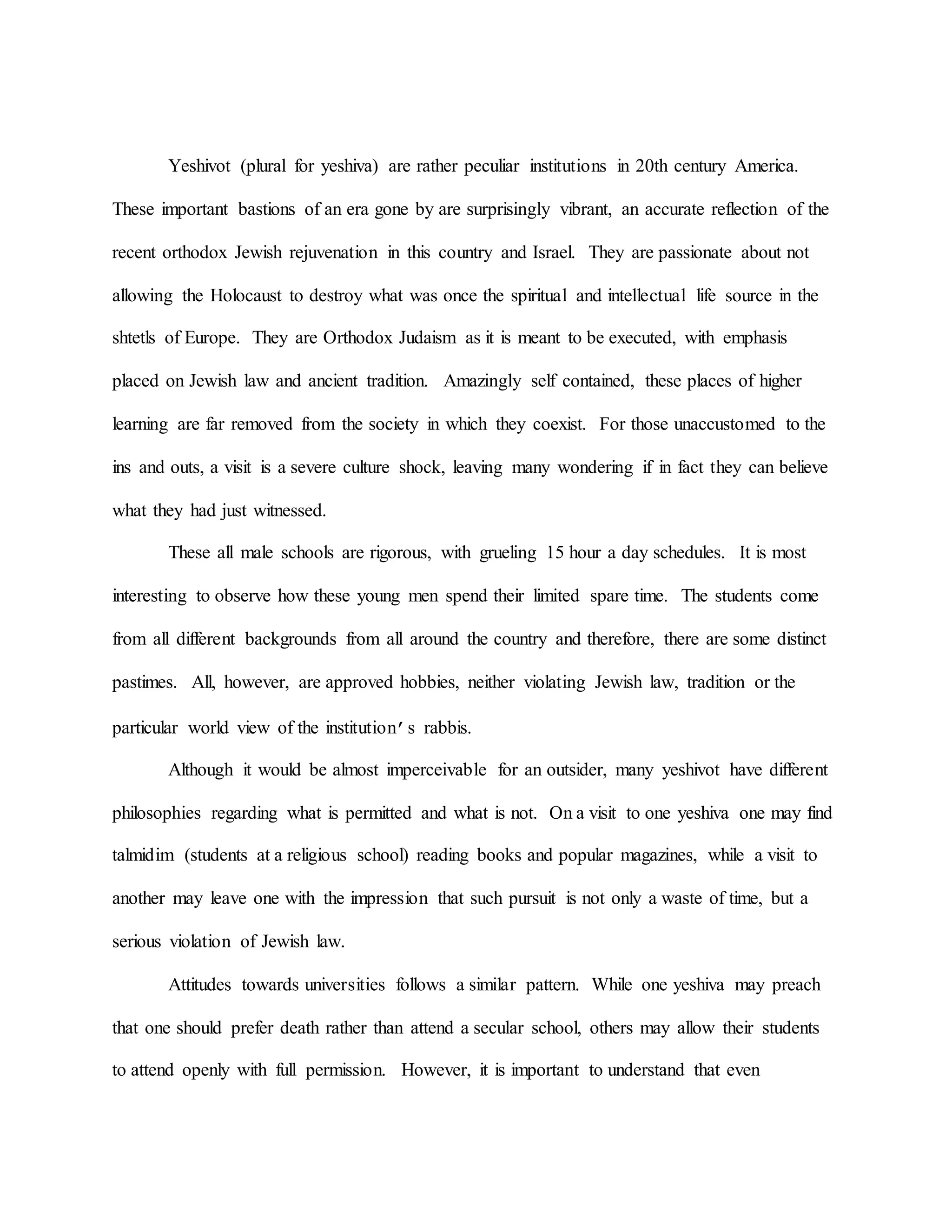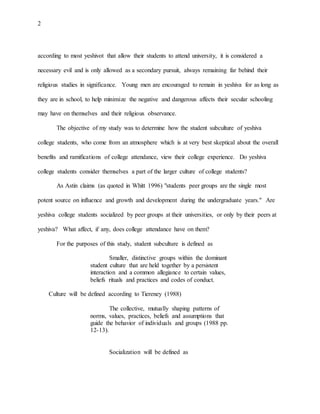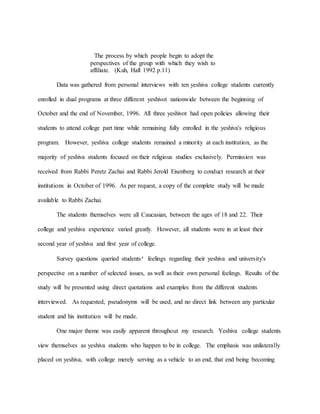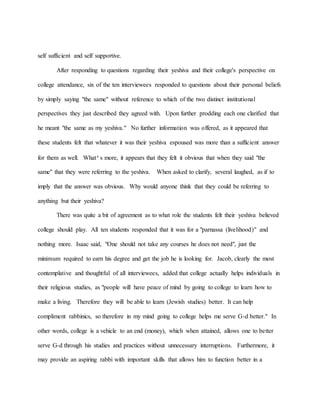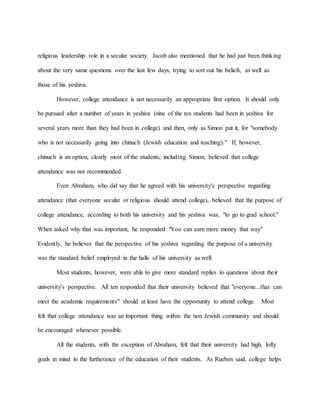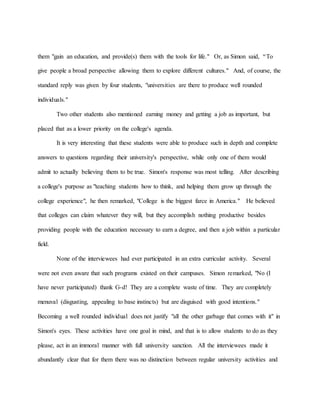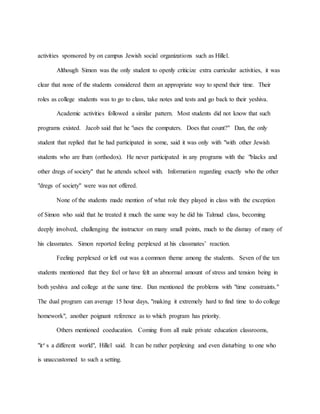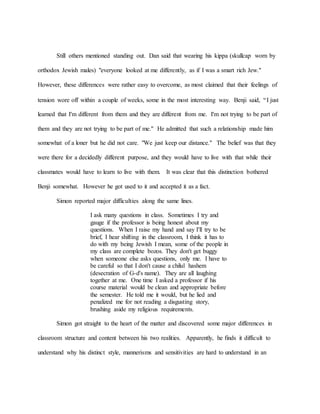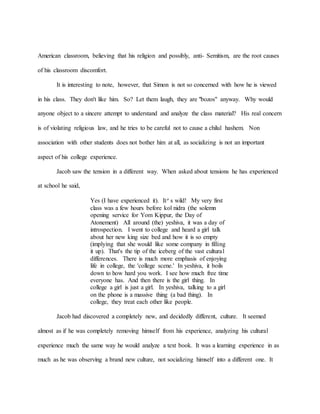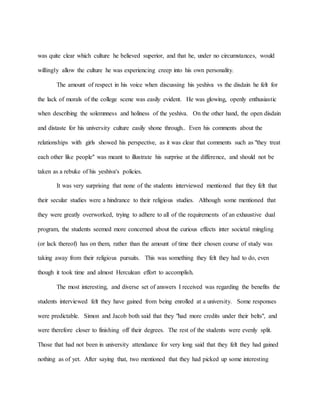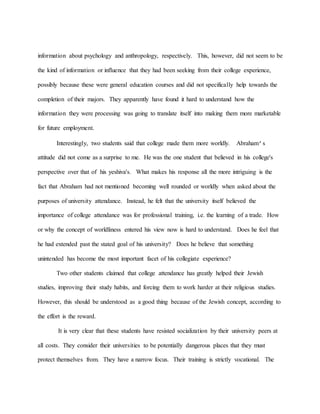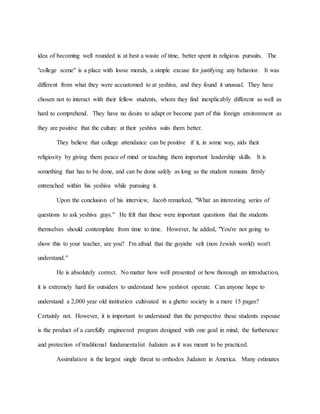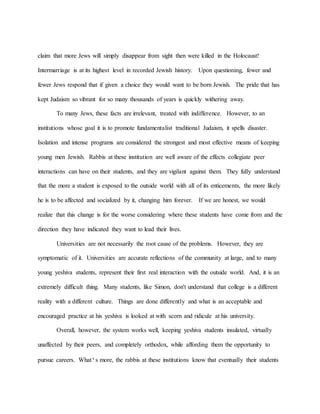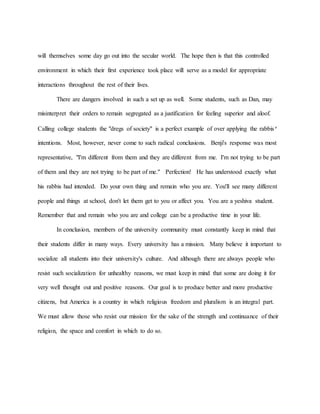Yeshiva college students view themselves primarily as yeshiva students, not university students. They see college's purpose as allowing them to earn a livelihood to support continued religious study, not for personal growth. While able to discuss their university's perspective of developing well-rounded individuals, they do not personally believe this. They feel tension from cultural differences at university but overcome it by avoiding non-academic activities and socializing primarily with other Orthodox Jewish students. Their priority remains their religious studies at the yeshiva.
